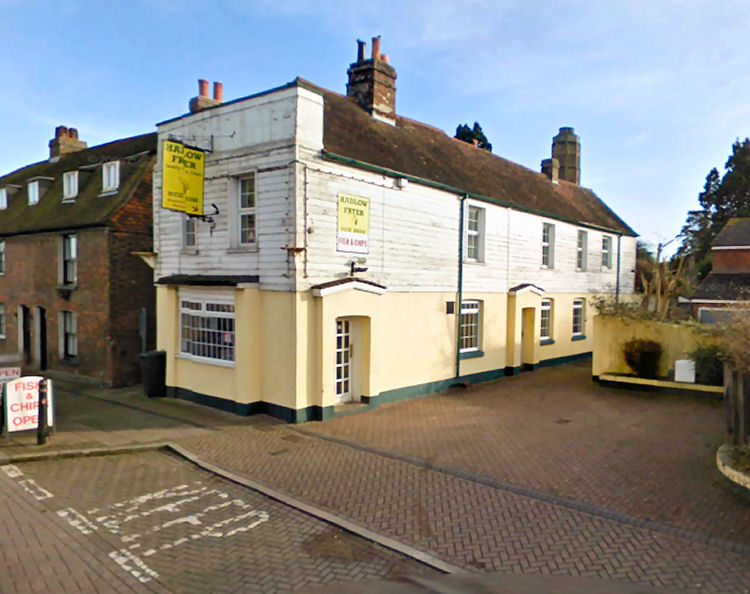|
Sussex Agricultural Express 03 October 1890.
THE BLACKSMITH'S ARMS, HADLOW.
Mr. W. C. Cripps, solicitor, of Tunbridge Wells, applied for the
renewal, to Mr. David Warnett, of the license of the "Blacksmith's
Arms," at Hadlow, which was adjourned from the annual licensing meeting,
as the landlord had been convicted of permitting gaming on his licensed
premises.
He said that the house had been in the possession of the
applicant's family for the last 150 years, and had been licensed the
whole of that time, except during the period when the old house was
pulled down, and a more commodious place erected.
It was an entirely
free house, and not under the control of any brewer. The property
belonged to the family, Mr. Warnett's mother having a life interest in
it, and, after her death, the whole of the brothers and sisters had an
equal share in it, some of whom had mortgaged their shares. He not only
today represented the applicant, but the family, and the mortgages as
well.
The conviction was for allowing gaming on the 1st January, the
week after Christmas, and it was in the applicant's favour that, on
being spoken to by the police, he at once admitted the facts of the
case, and at the hearing guilty. The fact was that there was a kind of
family party, and a goose was raffled for. At the hearing of the case
Supt. Barnes said that it was only fair to the defendant to say that he
was not the party who found the dice, but that they were brought into
the house by someone else. He was, however, present, and liable and
responsible for what took place. He thought again that the bet might
take into consideration the time of the year when this was committed.
Although wrong, there was no doubt it prevailing opinion in this part of
the country, as well as in others, that there was not much wrong in
raffling for such a thing as a goose at Christmas time. He was not for
one moment going to justify it, but it was for their worships to say
what penalty should be inflicted. As they knew, it would be a very
serious penalty not to renew this license, as it would not only injure
the applicant, but the property, and several persons as well. It was an
isolated case, and was very different to where young men, and married
men as well, were induced to gamble at cards for sums of money.
Though
the license was endorsed, the penalty inflicted was only a pound, when
the bench had the power to inflict, a penalty of £10. The house had been
conducted in an admirable manner both before and since this case, and
there had not been a single complaint by the police, or anyone else. He
had a memorial signed by the Rev. P. H. Monypenny (the vicar), Dr.
Lawrence, Mr. Conley (one of the churchwardens), Mr. Court, Mr.
Churches, Mr. Bailey and a large number of the principal inhabitants,
asking the bench to favourably consider the application, and describing
the applicant as of the highest character for sobriety, respectability,
and of general good character. The applicant had held the house for two
years, and he did not think that the bench would inflict on him such a
severe punishment as the loss of his license for the first offence.
There was, as well, a legal point, which he would not trouble the bench
with at the present time.
The Chairman said that he had received a
letter from the Rev. P. H. Monypenny stating that the applicant was a
man of the highest respectability.
Supt. Barnes, in reply to the bench,
said that there was not a more respectable man in Hadlow than the
applicant.
The Chairman announced that the bench would renew the
license, and hoped that nothing of the kind would occur again.
|
